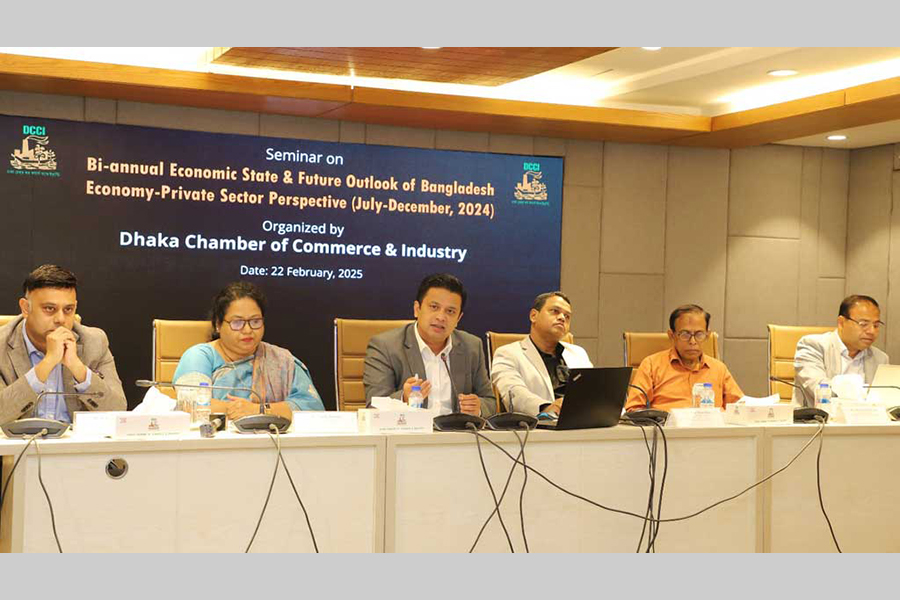

Dhaka Chamber of Commerce and Industry (DCCI) President Taskeen Ahmed says that the private sector credit growth rate has come down to a worrying level in the first half of the fiscal year.
“We see an alarming situation in the growth of the private sector. It has decreased by about 25 per cent to 7.3 per cent.”
At the end of June 2024, the growth rate of the private sector was 9.8 per cent. By December, it had decreased to 7.3 per cent. This means that it fell by about 25.51 per cent over the period, according to a bdnews24.com report.
DCCI President Taskeen demanded that the security of industries be ensured to maintain growth in the private sector.
“The safety and security of industries is necessary to ensure smooth operations. It is also important to maintain an uninterrupted supply of electricity and gas, production, business operations and smooth supply chain management.”
Taskeen made the remarks at a speech on the current state and future of the Bangladesh economy from the perspective of the private sector on Saturday.
At the seminar held at the DCCI Auditorium, he said, “In order to restore the confidence of entrepreneurs, it is essential to increase the rate of credit flow to the private sector to double digits, increase surveillance to reduce bad loans, bring good governance and transparency to the finance sector, and reduce the interest rate on loans.”
The DCCI president commented that although the inflation rate has decreased in the last two months, its impact cannot be seen in the market.
He proposed improving market management to control inflation, the use of strict enforcement of laws to break illegal syndicates, and a reduction of VAT on daily necessities as well as an increase in VAT on luxury goods.
At the event, Abdur Rahim Khan, additional secretary (export) of the Ministry of Commerce, said: “Collecting [tax] revenue of only $40 billion in our $500 billion economy is absolutely unacceptable.”
He said he could not reconcile the numbers.
Expressing his concern that the automation and national single window projects launched eight years ago are still not fully implemented, Rahim said: “If logistics policy and trade assistance are properly utilised, it is possible to reduce the overall cost of trade by 10-15 per cent.”
He also said that the investment gap will not be reduced unless revenue collection is increased and export-oriented foreign investment comes in.
Policy Exchange Bangladesh Chairman M Masrur Reaz said, “High inflation has been observed over the past few days due to the central bank’s delay in taking necessary initiatives and printing excess money, although a positive impact is being observed due to several initiatives taken by Bangladesh Bank from mid-2024.”
He said, “Due to the reserve crisis, restrictions on the imports of raw materials and machinery have led to shortages in our supply chain, which has affected the overall economy. If the reserves increase to $25-27 billion this year, the shortage of imports of essential goods in the industrial sector will be eliminated.”
Masrur said there is a need to ensure uninterrupted energy supply to the industrial sector to increase reserves.
If the instability in the industrial sector is brought under control exports will increase by $5-7 billion and have a positive impact on the overall economy, he said.


 For all latest news, follow The Financial Express Google News channel.
For all latest news, follow The Financial Express Google News channel.